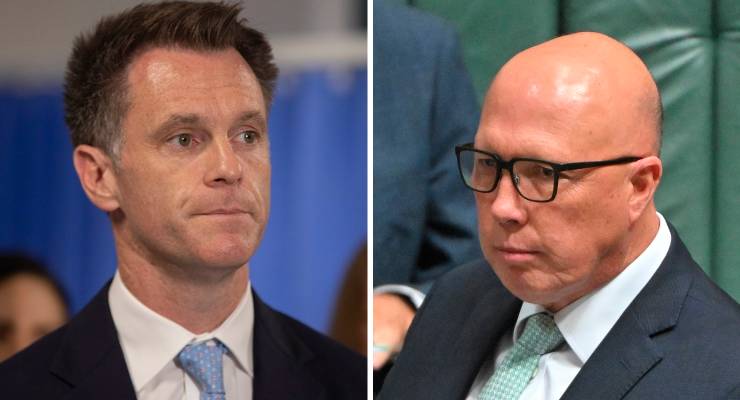
In what we might call the 9/11 worldview — the mindset that drove politicians, the media and policymakers through the long years of the failed war on terrorism — extremism isn’t just an enemy, it’s a way of thinking.
In that worldview, there’s always a crisis. The threat is always existential. The stakes are always high, the danger is always imminent, the demand for action urgent and overdue, existing laws are always inadequate (no matter how rigorously strengthened in the past), any pause for thought is fatal, any impediment to the most aggressive action possible must be overridden — and anyone who disagrees is at best soft on terrorism, or perhaps an enabler of terrorism through weak-kneed liberalism and self-hatred.
This polarised mindset is crucial to the overall goal of the 9/11 worldview, which is to continue to foster the conditions that produced the catalysing event for domestic political advantage — to launch military attacks on Islamic nations, to murder civilians with drone strikes and bombing campaigns, to launch domestic crackdowns and campaigns of demonisation of minority groups at home, with the goal of perpetuating the alienation and radicalisation that produces terrorism, and to do so knowingly, to the extent that security officials admit publicly acknowledge that their countries’ actions encourage recruitment for terrorist groups.
Peter Dutton’s effort yesterday to link the High Court’s ruling on indefinite immigration detention with anti-Semitism, and demand that Anthony Albanese remain in the country to performatively address both, prompted even notorious press gallery fence-sitters such as David Crowe and David Speers to criticise the opposition leader. But Dutton was merely reflecting the 9/11 mindset, as he has done from the very moment of the Hamas atrocities on October 7 as part of the broader 9/11-isation of Hamas’ attack on Israel and the justification for Israel’s punitive response of mass civilian slaughter in Gaza and ramped-up ethnic cleansing on the West Bank.
Dutton’s demand is that the government embrace Israel’s cause as its own (remember he suggested we should provide military aid to Israel) and work with the Coalition and News Corp to delegitimise any pro-Palestinian sentiment as automatically anti-Semitic. Moreover — and it is Dutton who has made the connection, not anyone else, not even his own immigration spokesman Dan Tehan — it should have immediately legislated to keep detained people, many of them with serious criminal records, released as a result of the High Court’s NZYQ decision, regardless of the rule of law, regardless of no judicial reasoning being available.
The link, by implication, is that at least some of the hitherto detained individuals, such as NZYQ, being refugees, are not white people.
The threat is imminent, the need for action urgent and overdue, the rule of law must be jettisoned, any pause for thought reckless, and it’s all evidence of how soft Labor is and how it can’t be trusted to protect national security.
That supporting a country practising colonialism and apartheid and killing thousands of civilians is likely to undermine both our national security and encourage Israel to create a generation of enraged Palestinians eager for revenge against Israel and the countries that back it isn’t an accidental outcome of such full-throated endorsement as Dutton wants — it’s exactly the point.
Dutton, however, isn’t alone in his 9/11-isation. The increasingly disappointing NSW Premier Chris Minns has ramped up his rhetoric towards pro-Palestinian protesters, tarring all of them with the anti-Semitic slurs expressed by a minority, accusing them of seeking to “commandeer” the streets, complaining that the heavy-handed policing of pro-Palestinian protests was costing $1 million each, and demanding that the Commonwealth pay for policing because the protests related to foreign affairs — as well as demanding his MPs back Israel.
Worst of all — and straight from the 9/11 playbook — Minns said he wanted to curb free speech still further, despite the relevant laws only being strengthened in 2018. The passage of those laws was welcomed by Labor then. “Tough new laws will send a signal to the likes of the extremist fringe that their brand of racism is no longer tolerated under the law,” one of Minns’ predecessors as Labor leader, Luke Foley, said at the time.
As always, existing laws are inadequate, and must be strengthened urgently, no matter how much stronger they’ve been made in the past, to combat an imminent threat.
Minns may get the political boost he craves for getting stuck into Palestinian Australians and tightening laws. In a few years, a subsequent politician will be denouncing Minns’ laws as hopelessly inadequate and in need of urgent strengthening. Like Dutton’s actions as the federal level, it’s an endless cycle. And it always ends badly.








Crikey encourages robust conversations on our website. However, we’re a small team, so sometimes we have to reluctantly turn comments off due to legal risk. Thanks for your understanding and in the meantime, have a read of our moderation guidelines.